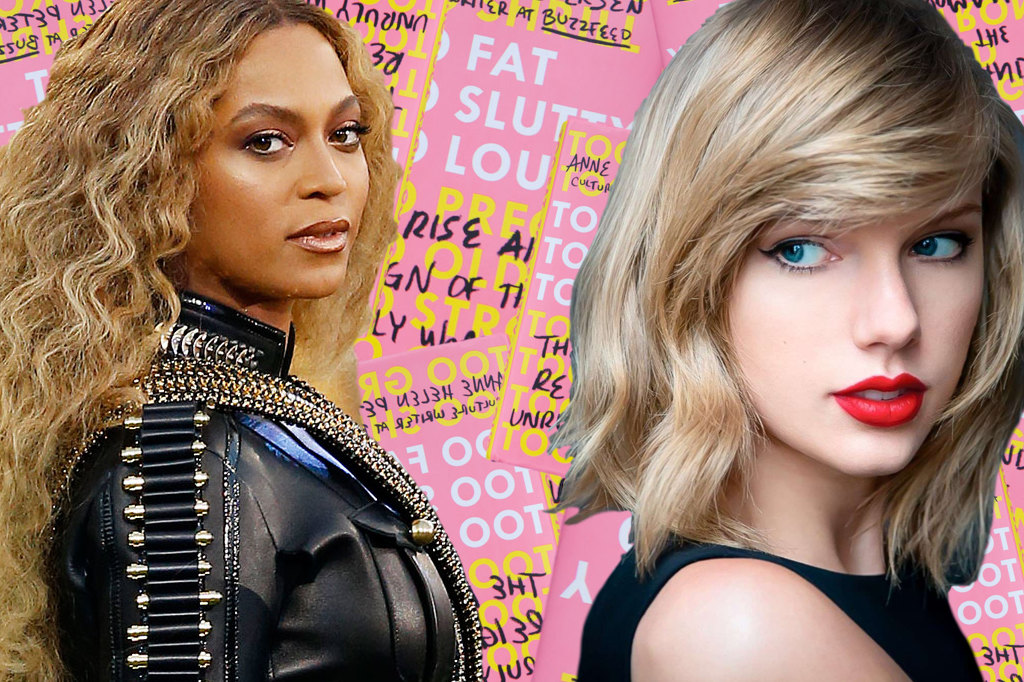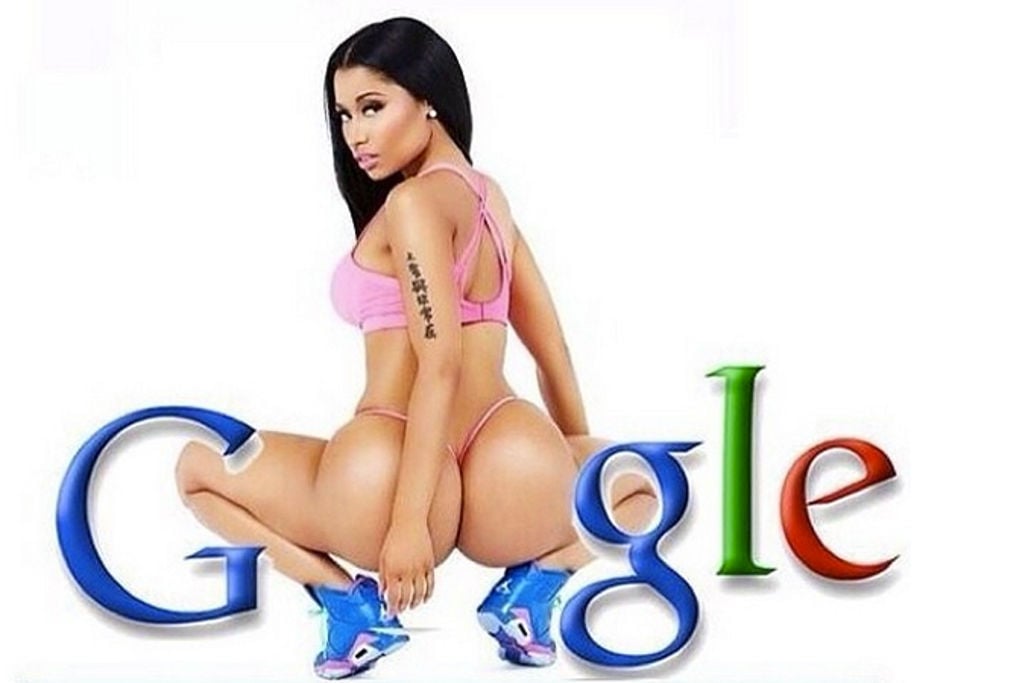Why We Should Take Celeb Culture Seriously: A Chat With Anne Helen Petersen
"Talking about celebrities is talking about things that matter without actually talking about ourselves."

There’s a line in Anne Helen Petersen’s new book where she describes celebrities as “our most visible and binding embodiments of ideology at work”.
“This is my favourite thing to talk about,” exclaims Petersen, who works as a senior culture writer at BuzzFeed US, when I ask her what she means.
The idea is that a star’s image — made up of everything they have ever said in public, the movies they’ve starred in, the songs they’ve sung, everything we know about them – is about something. And we shape that meaning. “We forget the things that don’t mean that thing and we emphasise the things that do mean that thing,” she explains.
Marilyn Monroe, for example, came to signify both sex and innocence. By revelling in her sexuality, apparently unashamed, she embodied a new way of thinking: that sex was only ‘dirty’ if it was repressed. Today, Jennifer Garner is family-oriented innocence. For some, Melania Trump is a symbol of the resistance to her husband — even though she rarely speaks, and has never publicly said anything to suggest she’s on board.
a good day to re-up this long read on Taylor Swift's decade-long posture as victim: https://t.co/tx7WK9ZYiG
— Anne Helen Petersen (@annehelen) August 25, 2017
While some people understand this intuitively, it’s still a stretch for many who like to write off pop culture as insubstantial. But as Petersen proves, thinking about celebrities (and their hair) doesn’t have to be a ‘guilty pleasure’.
“These stars — they’re such a clear extension of the things that moderate our lives in a particular moment,” she explains, “like ideas about what it means to be a woman or a man or a person of colour or a queer person or a mum or all sorts of things.”
“Talking about them is talking about things that matter without actually talking about ourselves.”
Unruly Women and Common Controversies
Talking about ourselves by talking about our stars is Petersen’s journalistic MO — one she puts into practice in her witty and insightful new book, Too Fat, Too Slutty, Too Loud: The Rise and Reign of the Unruly Woman.
In each of the book’s 10 chapters, Petersen explores a female celebrity who pushes the boundaries in some way. Melissa McCarthy is “too fat”, Broad City’s Abbi Jacobson and Ilana Glazer are “too gross”, Nicki Minaj is “too slutty”, Lena Dunham is “too naked”. By looking at how these famous women challenge permissible modes of femininity — but also how they temper their subversion — Petersen asks what it means to be a woman in 2017.
The concept of unruliness is at the book’s core. “I always think of unruliness as this idea of ‘too much’ or even just the word ‘too’,” Petersen says. “Like anything that exceeds the understanding of how a good woman or a good girl should be in public. That can apply to the body, to the way we speak, to the way your body grows in pregnancy, all sorts of things.”

Anne Helen Petersen AKA Celebrity Gossip, Academic Style.
Peterson tells me, to illustrate, that author and Jonathan Franzen-nemesis Jennifer Weiner is unruly (“too loud”), but Jennifer Lawrence is not (“No, she just eats pizza”). Unruliness is beguiling and magnetic, but we’re also taught to reject it. As one of the few high-profile black tennis players, Serena Williams (“too strong”) has constantly been interpreted through the lens of difference. She’s reached her massive popularity despite criticism for her muscular physique, her swagger, her outfits…
“Many tennis fans — like fans of any sport, or movie franchise, or musician — would rather not think about the racist, sexist, and classist underpinnings of their objects of affection, or the way their fandom can work to reproduce and reify those same hierarchies of power,” Petersen writes in the book.
“Williams’ very existence makes that impossible: she is the eternal question mark, the presence highlighting what so many would rather ignore. She is change manifest, which is to say she’s never not a threat: the most unruly, and essential, of women.”
Not everybody can get away with being unruly, which tells us something about the different constraints placed on different women. Most of the women profiled in Peterson’s book are white, and she says this is because white women find it easier to practice unruliness without dropping out of the mainstream.
“I purposefully chose people who had commercial success,” she explains. “There are many, many, many unruly women who have actually been too unruly. They haven’t been able to make it or they’ve been spit out of Hollywood and the entertainment business. And a lot of those people are women of colour, queer women, fat women, and trans women.”
However much criticism Lena Dunham has received, Petersen says, her path has been way easier than that of Nicki Minaj or Beyoncé.
Revision and Revolution
The concept of unruliness is actually borrowed from academia — scholar Kathleen Rowe Karlyn developed it in her writing on Roseanne’s Roseanne Barr — and that’s no coincidence in Petersen’s work. Before jumping across to BuzzFeed, she earned a PhD at the University of Texas and then spent a few years teaching. While her new book is an enjoyable read for anyone into fun celeb culture, it would also fit in on the cultural studies shelves of a uni library (the numerous footnotes are a clue).
A love and interrogation of celebrity culture is a constant theme of Petersen’s shifting career, from her academic work to her BuzzFeed essays. Every piece she writes is a fascinating, edifying look at whatever subject she’s attacking, but it’s also an argument for the value and seriousness of the worlds of celebrity and gossip, which tend to place low on Serious People’s hierarchies of stuff-worth-your-time-thinking-about.
Petersen is very familiar with these people — the kind who don’t think pop culture, celebrity and gossip are really worth anyone’s time. “I still all the time get ‘how could you get your PhD in celebrity, of course you’re dumb’, from trolls on the internet,” she tells me. And that’s what makes her work subversive, if not quite unruly itself.
For that reason it’s kind of fitting that she works at BuzzFeed. The publication is part of a digital media family — including Junkee — that old fogeys often like to write off as un-serious because they sometimes write about the Kardashians or Taylor Swift. I ask Petersen about this reaction to digital media, and she puts it down to anxiety about change.
“There’s this idea that real journalism is in print, when really that just means that it’s older,” she says. “It’s hard for people who only have one conception of where quality can come from — if you upset those hierarchies it unsettles them.”
“I still get ‘how could you get your PhD in celebrity’ all the time.”
The same fear of change drives a lot of the critiques to ‘unruly’ famous women, and not just from men. Petersen recalls a recoil against feminism throughout the 1990s, and worries another one is on its way.
“Even women are like, ‘I’m working with the status quo right now and I can figure that out. If things change I’ll have to figure out a new way to be in the world.’ It’s scary! … I’m trying to think of ways that we can prevent a similarly massive recoil and part of it is women right now deciding we’re not going to be party to the way that we push back against these women.”
The popularity of most of the women she profiles in the book has actually waned in recent times, and she’s worried that we’re about to go two steps back after taking one step forward.
“Obviously it’s ok to call women out when they do things that are messed up or contradictory or offensive or whatever,” Petersen says, “but also I think there are automatic reactions that we have to unruly women that are part of this ideology of trying to contain them in some way.”
The trick is in being more mindful about how we react to women who push the envelope, she explains. “Both in our everyday lives and our celebrity lives.”
–
Too Fat, Too Slutty, Too Loud: The Rise and Reign of the Unruly Woman is in bookstores now.
–
Hannah Ryan is a freelance writer currently studying postgraduate law in the US.

